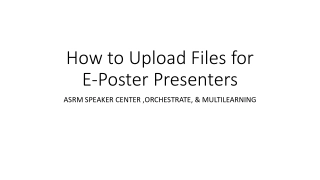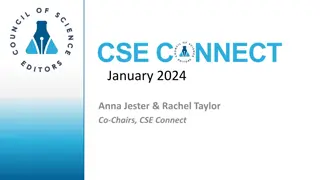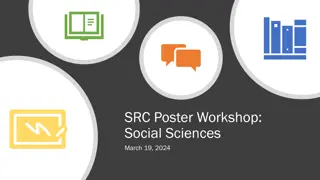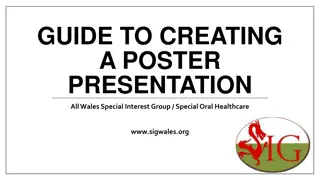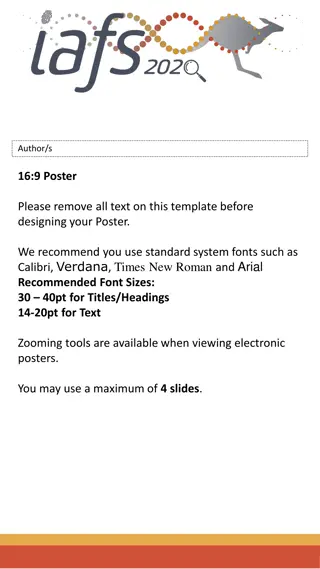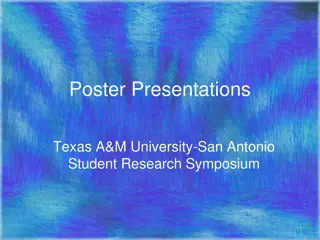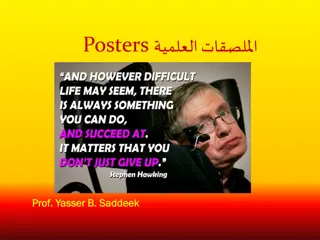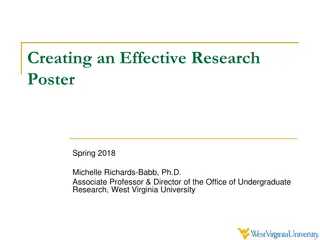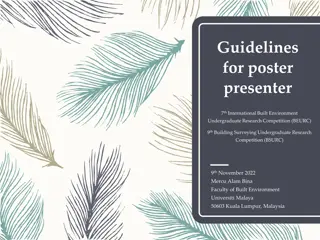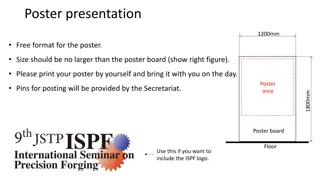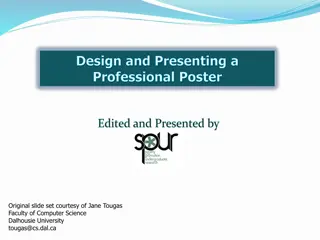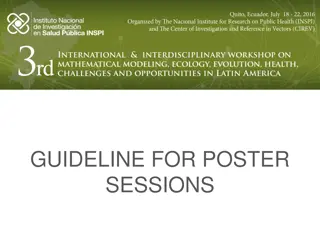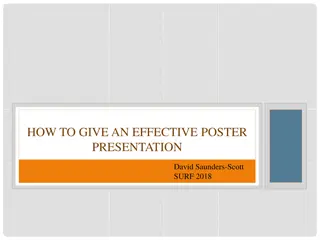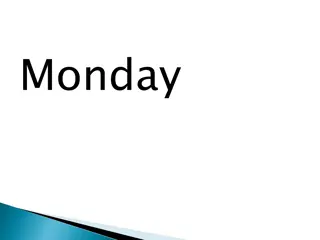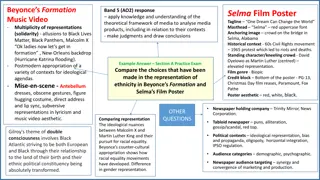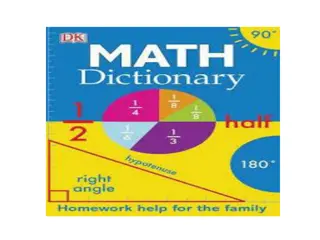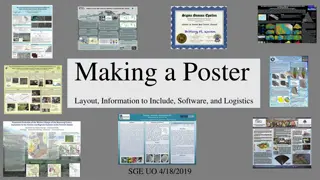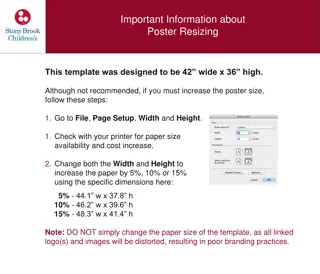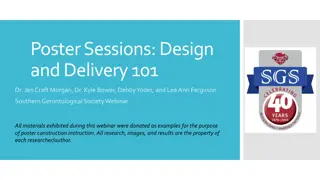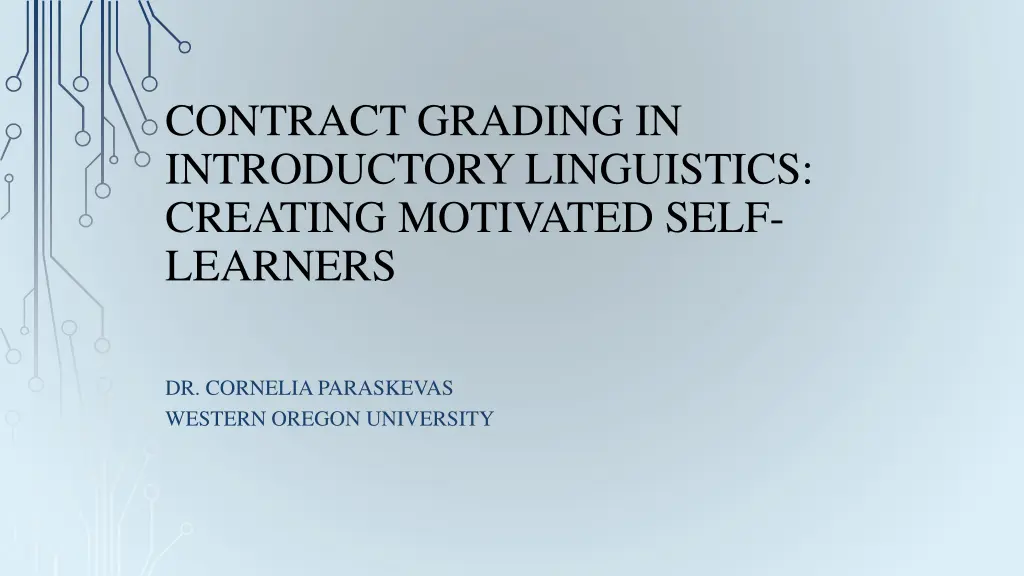
Creating Motivated Self-Learners in Linguistics
Empower students in introductory linguistics through contract grading to foster self-regulated learning and deeper understanding. Motivate English and Education majors in collaborative activities, assignments, and learning logs to achieve target grades reflective of their engagement and effort.
Download Presentation

Please find below an Image/Link to download the presentation.
The content on the website is provided AS IS for your information and personal use only. It may not be sold, licensed, or shared on other websites without obtaining consent from the author. If you encounter any issues during the download, it is possible that the publisher has removed the file from their server.
You are allowed to download the files provided on this website for personal or commercial use, subject to the condition that they are used lawfully. All files are the property of their respective owners.
The content on the website is provided AS IS for your information and personal use only. It may not be sold, licensed, or shared on other websites without obtaining consent from the author.
E N D
Presentation Transcript
CONTRACT GRADING IN INTRODUCTORY LINGUISTICS: CREATING MOTIVATED SELF- LEARNERS DR. CORNELIA PARASKEVAS WESTERN OREGON UNIVERSITY
THE CHALLENGE(S) Motivating students (English and Education majors) who see the required introductory linguistics course as a hoop without obvious practical applications and who, for the most part, are not intentional learners with significant awareness of their learning processes and strategies. THE SOLUTION: CONTRACT GRADING Redistributes power in the classroom Allows students to determine aspects of their learning and learning outcomes to achieve Sets explicit qualitative and quantitative criteria that allow students to choose their target grade Heeding the call to shift instruction to a learner-centered approach that encourages students to take more responsibility for own learning; emphasis is not just on what students learn but on how they are learning it, a deeper kind of understanding that enables them to retain and apply what they have learned (Weimer) Assumes baseline grade of C for mastering the foundational concepts of the discipline For higher target grades, students complete additional and more complex work that also involves tasks for self-regulated learning
CONTRACT GRADING AT A GLANCE Criterion A B C Forum posts In class activities 9 8 (minimum) 7 (minimum) Assignments (required + optional) 4 + 4 4 + 3 4 + 2 Learning Logs 8 (with additional questions listed in the Course Guide) 7 No Statements about language capstone Final Project No No Tokens available 1 2 3
The forum posts and in-class activities establish collaborative learning and work in both the synchronous and asynchronous environment. Grading criteria are established cooperatively: criteria for content and length are established by instructor; criteria for quality of participation by students. Graded as Pass/No Credit (no partial credit) Instead of requiring attendance, students choose the frequency based on their target grade.
Criterion A B C Assignments (required + optional) 4 + 4 4 + 3 4 + 2 Students are involved in their own learning because they are given the choice of which assignments to pursue. For the baseline grade (C), four required assignments that address the core areas: phonology, morphology, syntax, semantics/pragmatics. Students choose from remaining four optional assignments: higher grades reflect broader understanding of the discipline since time spent with material correlates partly with increased learning (Wirth) Across all assignments, there are minimum points required, corresponding to 70%, 80%, 90% for C, B, A, respectively.
Criterion Learning Logs A B 7 C No 8 (with additional questions listed in the Course Guide) Intentional, expert learners engage in the three phases of the self-regulatory process: The forethought phase (processes and beliefs that occur before efforts to learn); the performance phase (processes that occur during a task), and self-reflection (processes that occur after each learning effort.) Learning logs (also known as wrappers ) that include specific questions for each phase are used in conjunction with the Assignments (and/or quizzes) and are key to creating intentional learners. Zimmerman, Becoming a Self-Regulated Learner. To track their growth and development as intentional learners, students complete a Metacognitive Awareness Inventory in the beginning, middle and the end of term.
STUDENT COMMENTS I would say that throughout the term I have started being more intentional in my prior planning before engaging with the material. For example, I now set goals of what I want to learn from the material before I begin reading. Another strategy I have learned to become a self-regulated learner is by summarizing what I have learned and asking myself how well I accomplished those goals. At the end of every chapter, I liked to write a one paragraph summary with all the important information I learned. I often found myself having trouble with fully learning the information, so being able to recall what I read helped the information to sink into my brain. This was a new strategy that I tried because with past experience I know that I can fully understand a concept when I tell someone else that doesn t know the material what I learned. Even though I didn t have someone immediate to talk to, writing down my thoughts was my next best option .
Criterion Statements about language capstone A B C Final Project No No Students have choices within the required signature assignment that aligns with a course learning outcome: depending on the target grade, they choose how many short reflections to complete (and how much detail to provide) in order to reveal their changing understanding of language ( from language myths to language reality ). The final project distinguishes grade A from B: it requires students to synthesize discipline-specific concepts
Criterion Tokens available A B C 1 2 3 Tokens are free passes : they are the currency that students can use to submit work late. The student s choice of target grade determines how many tokens they can use. Tokens are equalizers: they do not penalize students whose family demands might affect on-time submission of work By the end of the term, only 5 students (out of 58) had used a token each.
HOW DID STUDENTS RESPOND TO CONTRACT GRADING? Beginning of Term Middle of Term End of term Number of students Target grade A Target grade B 70 32 3 58 29 6 49 14 7 Higher number of A s and B than in a typical class. Students persistence was uneven: although before the end of the term, 29 students still had A as their target grade, by week ten only 14 completed the task that was required for target grade A (and separated it from target grade B).
REFERENCES Bowen, Jose Antonio, Cognitive Wrappers: Using Metacognition and Reflection to Improve Learning. https://teachingnaked.com/cognitive-wrappers-using-metacognition-and-reflection-to-improve-learning/ Elbow, Peter, "A Unilateral Grading Contract to Improve Learning and Teaching [co-written with Jane Danielewicz]" (2008). College Composition and Communication. 3. Retrieved from https://scholarworks.umass.edu/eng_faculty_pubs/3 Inoue, Asao B. (2019). Labor-Based Grading Contracts: Building Equity and Inclusion in the Compassionate Writing Classroom. Perspectives on Writing. The WAC Clearinghouse; University Press of Colorado. https://doi.org/10.37514/PER- B.2019.0216 https://wac.colostate.edu/books/perspectives/labor/ Nilson, Linda. Specifications Grading. Stylus Publishing. 2015. __________ . Creating Self-Regulated Learners: Strategies to Strengthen Students Self-awareness and learning skills. Stylus Publishing. 2013. Weimer, Maryellen. Focus on Learning, Transform Teaching. Change, Vol. 35, No. 5 (Sep. - Oct., 2003), pp. 48-54. Accessed: 12-07-2019. Wirth, Karl R. and Dexter Perkins, Learning to Learn. http://www.macalester.edu/geology/wirth/CourseMaterials.html Zimmerman, Barry J. Becoming a Self-Regulated Learner. Theory Into Practice. June 2002 Zimmerman, Barry J., A. Moylan, J. Hudesman, N. White, & B. Flugman, Enhancing self-reflection and mathematics achievement of at-risk urban technical college students, Psychological Test and Assessment Modeling, Volume 53, 2011 (1), 141-160.

